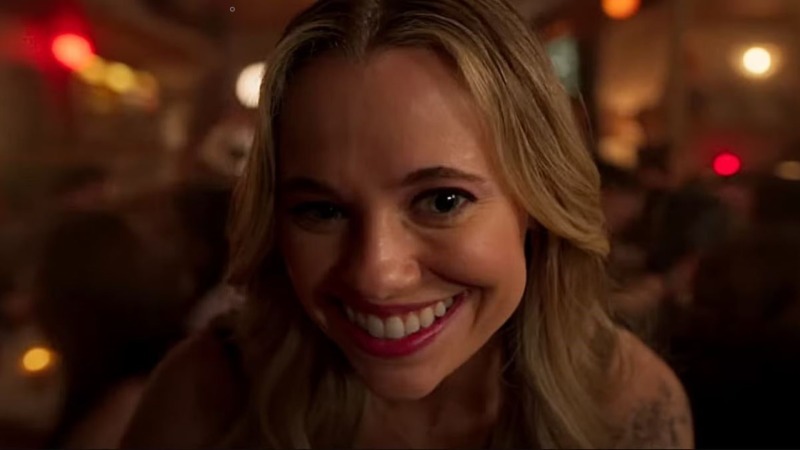The Sultry, Silly Witchboard Is a Handsome Horror Return for Chuck Russell

A quarter of a century is a long time to take off from a genre, when it’s the one you’re perhaps most lovingly associated with as a filmmaker. It’s been 25 years since the last time writer-director Chuck Russell spun a horror yarn … and even then, the film in question was 2000’s critically reviled Bless the Child, one of the few of its era to have not received some kind of postmortem “this is secretly a hidden gem!” treatment from Letterboxd tastemakers. Given that, it’s entirely reasonable for the average film/horror geek to be a little leery of Russell reemerging (though he’s been directing indie projects again since the mid-2010s) to tackle a remake of 1986’s minor cult classic Witchboard of all things. It’s only natural to ask the obvious question: Does the guy still have it?
It’s a pleasure to report that the answer, for the most part, is yes–the reimagined Witchboard is relentlessly entertaining, nasty in its misanthropic delight in messing with its characters, stylishly put together, and unexpectedly sexy to boot. Deeply silly but more narratively ambitious than one would likely expect, it’s bursting (honestly overstuffed) with ideas and cinematic verve, taking advantage of a slightly longer runtime to really venture into increasingly bonkers metaphysical territory as it draws on and creates new cinematic tropes for movies about witches. As long as the viewer can roll with a little tonal drift, it’s easy to appreciate Russell’s still sharp sense of humor, his panache, and the deliciously arch performance of Stranger Things star Jamie Campbell Bower in particular, who brings the kind of gravitas to a villain performance that you might have expected to get out of Vincent Price in the 1970s or Jeffrey Coombs in the 1980s.
Perhaps it should be no big surprise to see Russell thrive again with horror material, but considering the true chasm that exists between the present year and his most cherished genre works–1987’s all-time slasher sequel A Nightmare on Elm Street 3: Dream Warriors and 1988’s squelchy sci-fi FX extravaganza The Blob–it’s a pleasant thrill to see him back in such form. And indeed, Russell does consider Witchboard as the third, long-delayed part in a trio of horror reimaginations that includes those two previous titles. And unlike some of his other more recent work, this one feels like it has the budget, the imagination and the passion to stand alongside those classics.
Witchboard begins its reimagination of the material by ditching the title object in question: The 1986 film was a progenitor of the “haunted/evil Ouija board” subgenre, but several Hollywood forays in that direction meant that Russell would need a new focal point for his story. He finds it in the concept of the pendulum board–a circular board in which the user calls upon a supernatural presence to move a dangling object or chain toward various markings and writings, thus revealing the answer to one’s questions. The board in question belonged to a 17th century French witch by the oddly Lovecraftian-sounding name of Naga Soth (Antonia Desplat), executed after seeking supernatural revenge against Bishop Grogan (David La Haye), the hypocritical false man of god who is implied to have abused her behind closed doors. In this way we establish our witch as both antagonist and revisionist antihero seeking justified payback, echoing something like the treatment of the witch in Leigh Janiak’s Fear Street trilogy, and certainly better established than the half-baked, nonsensical attempt at a similar turn in last year’s House of Spoils. When the titular board ends up in the hands of fiancees Emily (Madison Iseman) and Christian (Aaron Dominguez), two budding restaurateurs preparing to open an upscale cafe in New Orleans, we can quickly see that Emily will fall under its influence, becoming a tool of vengeance from beyond the grave … but perhaps someone also has intentions to manipulate our witch as well?
-

-

-

-

-

-

-

-

-

-

-

-

-

-

-

-

-

-

-

-

-

-

-

-

-

-

-

-

-

-

-

-

-

-

-

-

-

-

-

-








































